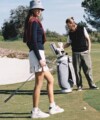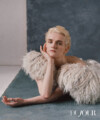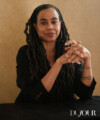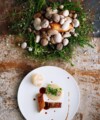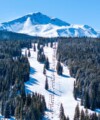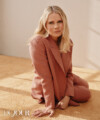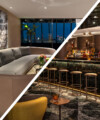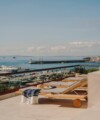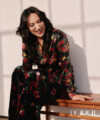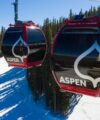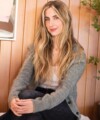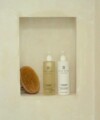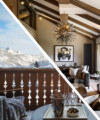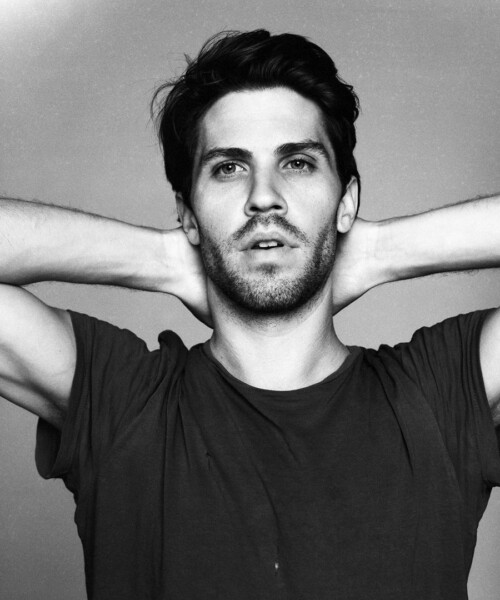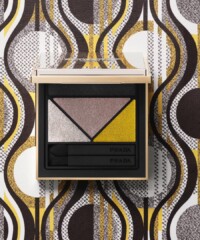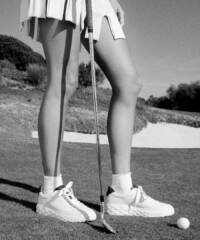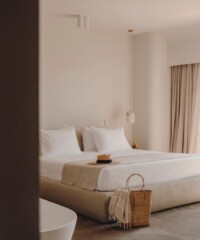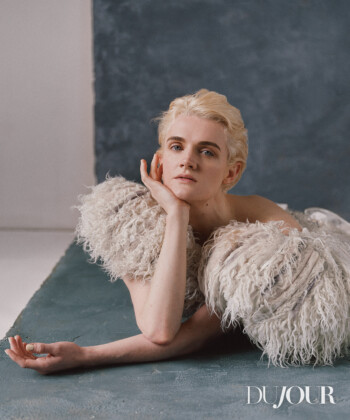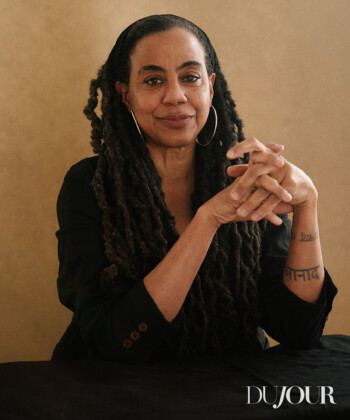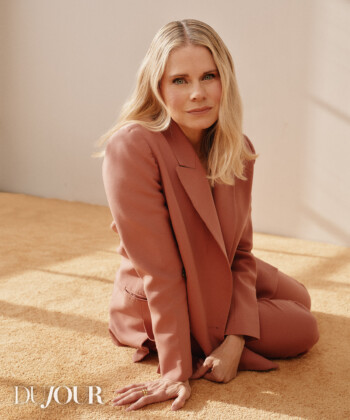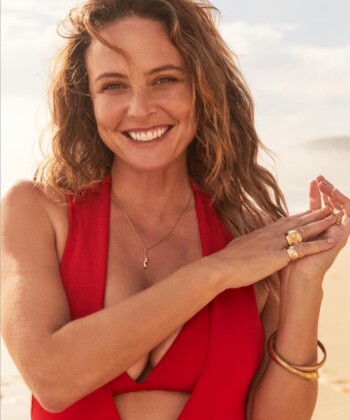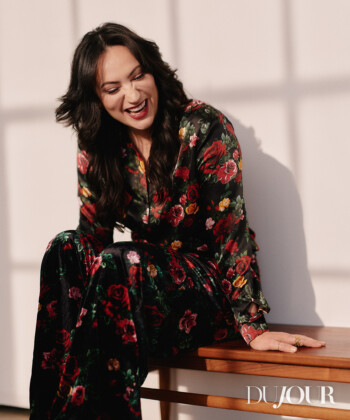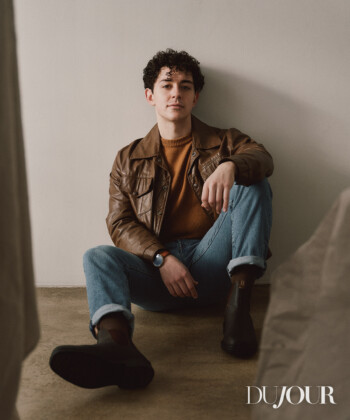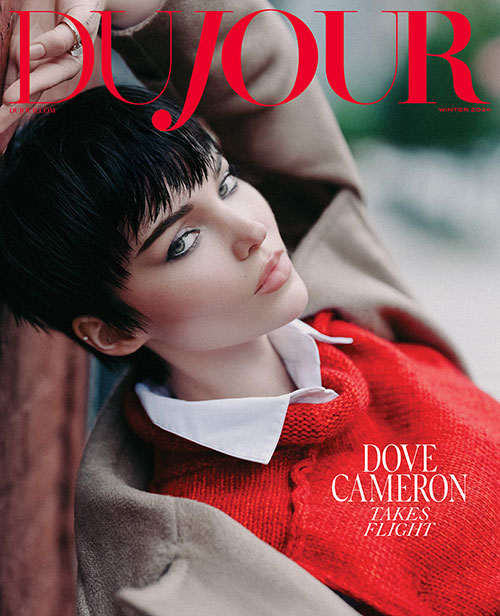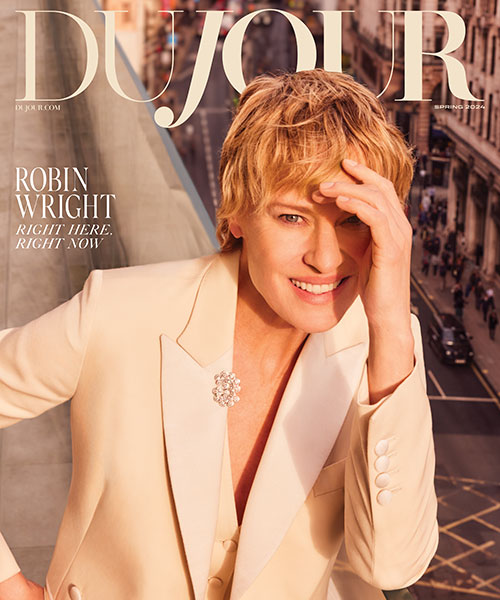It’s shaping up to be quite a month for the musician known as Lo Fang. On February 24 the avant-garde pop artist, born Matthew Hemerlein, will release his first album, Blue Film, and just a week later he’ll start a new gig: opening for reigning pop queen Lorde on her North American tour.
DuJour talked with Hemerlein—who’s trained in violin, cello, bass, piano and guitar and played all the instruments on Blue Film—about the songs he wrote, the far-flung places he wrote them and just what his stage name means.
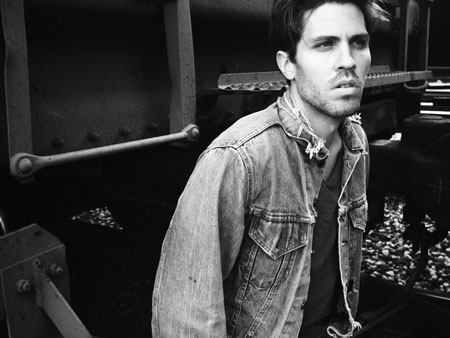
You’re trained on a huge number of instruments. How did you start playing?
I started playing violin when I was five years old. Music was really important to me growing up; it was a big part of education for me and my brother and sister. I switched to cello when I was 12, but I continued to play violin and I picked up other instruments along the way. I knew I wanted to be working in music, so I always sought out and studied with different people.
The last instrument I wanted to learn to play was upright bass. It felt like a really necessary instrument to have in your hands. I started doing that when I was 20, in New Orleans, and continued with it.
That’s a lot of instruments. When did you start writing songs?
I remember making up melodies when I was growing up, just feeling things and then playing them. But I didn’t start writing songs with words until I was 16 or so. It was exactly what you’d imagine.
This is your first release, though. How did you decide it was time to put that music out into the world?
I was working on music prior to being involved with my label. I was being a bit of a nomad, working and writing a lot and making songs. I was taking interesting opportunities as they presented themselves.
OK, but why make a record?
I always thought in terms of albums. Call me old-fashioned, but in my head that’s what it is when you’re working on songs. I’m trying to make a strong body of work and have a cohesive collection of songs, so when I have those songs that’s when the album is done.
What was the most challenging part of making Blue Film?
Honestly, it was pretty difficult. I was making it without a label’s support. I had support from my publisher in that I had access to amazing studios, but they didn’t know what I was up to. I think the hardest part was finishing it, getting it to a place where you’re hearing the song as the initial idea you had but in a fully realized version. It’s easy to obsess.
Seeing my songs come to life in different ways after they’ve gone through so man changes. I learned to sing so many things and really got a command of working in studios. I hadn’t had that skill before. Through this process I really developed that. It was all pretty exhilarating. Nothing wasn’t fun.
You were traveling extensively while making this album. How did the travel affect your music?
Some of the songs were written in specific places. I wrote the first part to the song “88” when I was in Angkor Wat. The melody is definitely influenced by that landscape and it was initially about what was going on there in more specific, lyrical terms. But then I changed the lyrics to make it a bit more universal. Different things pull different ideas out of you.
I wasn’t signed [to record label 4AD] until the end, but I was just getting these interesting opportunities to travel. A friend of mine who works with National Geographic and is an extensive world traveler offered me plane tickets to go to Asia and hang out. That’s the type of thing you say yes to.
Who wouldn’t? OK, so where does the stage name come from?
I had a song kicking around for a while called “No Fangs,” and when I was driving cross-country this just popped into my head. I liked it because of the way the letters L and F play off one another. There’s opposition in the two but also a very nice balance.
MORE:
Cardigans Frontwoman Nina Persson on Going Solo
Getting to Know Lou Doillon
Rocker Diego Garcia’s Trip to Paradise



